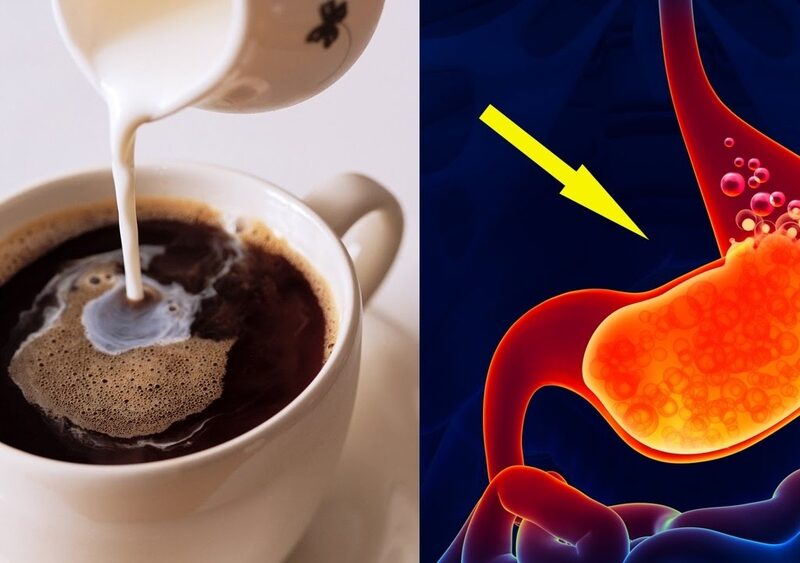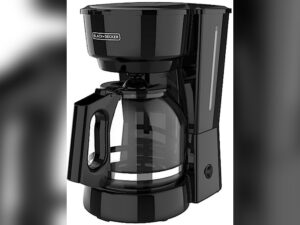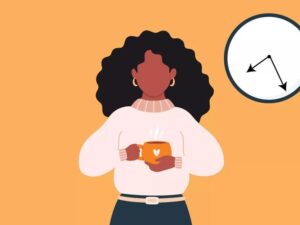Are you one of those people who reach for a cup of coffee the moment you wake up—before even having breakfast? You might think it jumpstarts your day, but have you ever stopped to wonder if drinking coffee on an empty stomach is actually good for you?
What if that morning cup is causing more harm than you realize? From stomach discomfort to unexpected energy crashes, the effects could be sneaking up on you. Keep reading to discover why your coffee habit might need a simple change—and how you can still enjoy your favorite brew without the side effects.
Your mornings—and your body—will thank you.

Credit: health.clevelandclinic.org
Coffee And Stomach Acidity
Drinking coffee on an empty stomach can affect your stomach’s acidity. Coffee prompts your stomach to produce more acid, even when no food is present. This rise in acid may cause discomfort and other digestive issues. Understanding how coffee interacts with stomach acid helps explain why some people feel uneasy after their morning cup.
Hydrochloric Acid Production
Coffee stimulates the stomach to release hydrochloric acid. This acid is essential for breaking down food. Without food, excess acid can build up quickly. High acid levels may irritate your stomach and cause pain.
Effects On Stomach Lining
The stomach lining protects against acid damage. Excess acid from coffee can weaken this lining. Over time, this may lead to inflammation or soreness. A sensitive stomach feels this effect more strongly.
Indigestion And Acid Reflux
More acid in the stomach can cause indigestion. Symptoms include bloating, nausea, or discomfort. Acid reflux occurs when acid moves up into the esophagus. This causes heartburn, a burning feeling in the chest.
Intestinal Discomfort Risks
Drinking coffee on an empty stomach can trigger various intestinal discomforts. The absence of food means coffee’s acids and compounds hit your digestive tract directly. This can lead to uncomfortable symptoms affecting your gut health and daily comfort. Understanding these risks helps you decide the best way to enjoy your coffee.
Increased Intestinal Motility
Coffee stimulates muscles in the intestines, speeding up movement. This faster movement can cause urgency or diarrhea in some people. Without food, the effect may be stronger and sudden. This can disrupt your morning routine and cause discomfort.
Cramping And Bloating
Drinking coffee on an empty stomach may cause cramping sensations. The acids and caffeine can irritate the intestinal lining. This irritation may lead to bloating or gas build-up. These symptoms can make you feel uneasy and heavy.
Impact On Sensitive Guts And Ibs
People with sensitive digestive systems or IBS often face stronger reactions. Coffee may trigger flare-ups or worsen symptoms like pain and irregular bowel movements. Avoiding coffee on an empty stomach can reduce these risks. Gentle alternatives or eating first may protect your gut health.
Blood Sugar And Energy Impact
Drinking coffee on an empty stomach affects blood sugar and energy in several ways. Coffee stimulates the body and brain, but it also impacts how blood sugar behaves. These changes can influence energy levels throughout the day. Understanding these effects helps you decide the best time to drink coffee.
Caffeine triggers the release of stress hormones like adrenaline. These hormones signal the liver to release stored sugar into the bloodstream. This process can cause blood sugar to spike quickly. The sudden rise may lead to a crash later, making you feel tired or shaky.
Blood Sugar Spikes And Crashes
Drinking coffee without food can cause blood sugar to rise sharply. The body then produces insulin to lower blood sugar. This drop can be sudden, causing a crash. Symptoms include weakness, dizziness, and hunger. These swings make it hard to maintain steady energy.
Effects On Diabetes And Insulin Sensitivity
People with diabetes must watch their blood sugar closely. Coffee on an empty stomach can affect insulin response. It may reduce insulin sensitivity, making blood sugar control harder. This effect can lead to higher blood sugar levels over time. Careful monitoring is important for those with diabetes.
Fatigue And Irritability
Blood sugar fluctuations from coffee can cause fatigue. After the initial energy boost, a crash may follow. This leads to tiredness and low mood. Irritability can also increase due to unstable blood sugar. Eating before coffee helps avoid these energy swings.
Mental And Nervous System Effects
Drinking coffee on an empty stomach affects the mental and nervous system in several ways. The caffeine quickly enters the bloodstream without food to slow absorption. This rapid effect can influence mood, focus, and stress levels. Understanding these effects helps you decide the best time to enjoy your coffee.
Heightened Jitters And Anxiety
Caffeine stimulates the nervous system. Without food, this boost can become too strong. You may feel restless or shaky. Anxiety symptoms, like a fast heartbeat or nervousness, can increase. These jitters can make it hard to concentrate or relax.
Cortisol And Stress Hormones
Coffee triggers the release of cortisol, the stress hormone. Drinking it on an empty stomach can raise cortisol levels more than usual. High cortisol can increase feelings of stress and tension. Over time, this may affect mood and energy balance.
Feelings Of Overwhelm
The combined effect of caffeine and stress hormones can feel overwhelming. You might experience racing thoughts or difficulty calming down. This sensation can reduce your ability to handle daily tasks. Eating before coffee can help moderate these feelings.
Ways To Avoid Negative Effects
Drinking coffee on an empty stomach can cause discomfort and disrupt your digestion. Avoiding these negative effects helps you enjoy coffee without pain or anxiety. Simple habits can protect your stomach and improve your coffee experience.
Eating Before Coffee
Having a small meal or snack before coffee lowers stomach acid irritation. Foods like toast, bananas, or yogurt create a buffer. This reduces heartburn and keeps your stomach calm. Eating first also slows caffeine absorption. It prevents sudden jitters or energy crashes.
Listening To Your Body
Pay attention to how coffee affects your body each day. Notice signs like stomach pain, nervousness, or shakiness. These signals mean you might need to adjust your coffee routine. Try drinking less coffee or spacing it out from meals. Your body guides you to a safer way to enjoy coffee.
Trying Alternative Beverages
Switching to gentler drinks can help if coffee on an empty stomach feels harsh. Herbal teas, warm water with lemon, or chicory coffee are good options. These drinks are less likely to cause acid reflux or stomach upset. They hydrate and wake you gently without caffeine overload.

Credit: continentalhospitals.com

Credit: www.healthline.com
Frequently Asked Questions
Why Should You Not Drink Coffee On An Empty Stomach?
Drinking coffee on an empty stomach increases stomach acid, causing heartburn and indigestion. It spikes caffeine absorption, leading to jitters, anxiety, and blood sugar crashes. These effects can cause fatigue and irritability. Always eat before coffee to protect your stomach and balance energy levels.
Is It Better To Drink Coffee Before Or After A Meal?
Drinking coffee after a meal reduces stomach acidity and prevents jitters. It also helps stabilize blood sugar and improves digestion. Avoid coffee on an empty stomach to prevent heartburn, anxiety, and energy crashes. Enjoy coffee with or after food for better health and comfort.
Is It Safe To Drink Coffee On An Empty Stomach?
Drinking coffee on an empty stomach can increase stomach acid, causing discomfort and heartburn. It may also trigger jitters, anxiety, and blood sugar imbalances. For sensitive individuals, it’s best to consume coffee with food to avoid these side effects.
Why Does Coffee Upset My Stomach When Empty?
Coffee stimulates hydrochloric acid production, which can irritate the stomach lining if no food is present. This irritation may lead to indigestion, acid reflux, and stomach pain, especially for those with sensitive digestive systems.
Conclusion
Drinking coffee on an empty stomach can cause stomach discomfort. It may increase acid and lead to heartburn or indigestion. Caffeine can also make you feel jittery or anxious faster. Blood sugar levels might spike and then drop quickly. This can leave you feeling tired and hungry sooner.
Eating before coffee helps reduce these effects. Listen to your body to find what works best. Small changes can improve your morning routine and how you feel. Choose wisely for a healthier start to your day.








